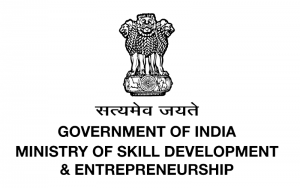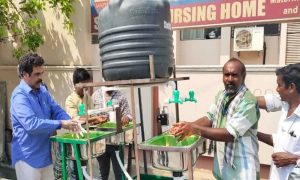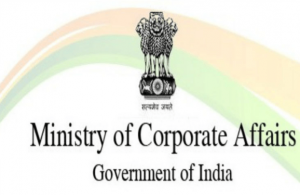Wednesday, April 01, 2020
GS SCORE Prelims 2020 Test 34 With Solution PDF
VisionIAS
06:37
GS SCORE Prelims 2020 Test 34 With Solution PDF
Click Here to download GS SCORE Prelims 2020 Test 34 With Solution PDF
Click Here to Like our Facebook page for latest updates and free ebooks
GS SCORE Prelims 2020 Test 33 With Solution PDF
VisionIAS
06:34
GS SCORE Prelims 2020 Test 33 With Solution PDF
Click Here to download GS SCORE Prelims 2020 Test 33 With Solution PDF
Click Here to Like our Facebook page for latest updates and free ebooks
Tuesday, March 31, 2020
Shankar IAS Target 2020 Reports and Indices PDF
VisionIAS
16:22
Shankar IAS Target 2020 Reports and Indices PDF

JOIN UPSC MATERIALS TELEGRAM--CLICK HERE
Click Here to download Shankar IAS Target 2020 Reports and Indices PDF
Click Here to Like our Facebook page for latest updates and free ebooks
Shankar IAS Target 2020 Science and Technology PDF
VisionIAS
16:19
Shankar IAS Target 2020 Science and Technology PDF

JOIN UPSC MATERIALS TELEGRAM--CLICK HERE
Click Here to download Shankar IAS Target 2020 Science and Technology PDF
Click Here to Like our Facebook page for latest updates and free ebooks
Daily Current Affairs, 31st March 2020
VisionIAS
16:07

1) DRDO develops casualty evacuation bags

The shape of the Bag:
•The bag is in the shape of a rigid cylinder is made of non-woven, water-repellant fabric with air and waterproof zippers as well as a ventilator. It is coated with a film to cater to a chemical, biological, radiological and nuclear (CBRN) environment with requisite protection against blood and viral penetration. The size and shape of the COVID casualty evacuation bag is something akin to a fabric chamber developed by DEBEL in the aftermath of the 1999 Kargil conflict to manage patients affected with High Altitude Pulmonary Odema (HAPO). The chamber is airtight and simulates air pressure that is prevalent at lower altitudes while evacuating patients from high altitude.
Multi-Patient Ventilators:
•The Defence Research and Development Organisation (DRDO) is also trying to develop ‘multi-patient ventilators’ to support critical COVID-19 patients. The multi-patient ventilators will help support several patients through a single unit. The DRDO is developing the advanced ventilators to meet the demand in case the coronavirus outbreak goes out of control. The DRDO aims to produce around 5000 ventilators in the first months and 10,000 subsequently.
2) MSDE prepares NSTIs as quarantine centres for COVID-19

More key measures taken by MSDE are:
•The Ministry of Health and Family Welfare has been facilitated with a list of around one lakh personnel trained in healthcare skills through various programmes under the Skill India Mission. This force is expected to boost the efforts to contain the COVID-19 spread, and treatment and care of infected people in the new quarantine/ isolation/ hospital facilities.
•The employees of the Ministry of Skill Development and Entrepreneurship will contribute at least one day salary to PM cares Fund.
3) Jharkhand govt launches PRAGYAAM app to issue e-passes

•Jharkhand District Transport Officers have been given authority to issue e-passes to vehicles through online mode after verification of the documents uploaded through the app. These passes will be issued to those involved in the regular supply services, medical, banking and other necessary services. Officials can also verify the status of the e-passes on the app and other details, including mobile number and identity card of the person engaged in such duties to curb the chances of fake e-passes.
4) Andhra Pradesh govt sets up Mobile Hand-wash facilities

•With prevention and cleanliness being the sole method to stay Coronavirus away, with the assistance of some NGOs, the local authorities are taking the hand wash facility itself to slum dwellers. They fitted a water tanker to a vehicle, with four tap connections and 4 washbasins. Two soap dispensers also are fitted to the installation.
•Officials feel that it’ll bring equality among people in terms of access to raised health and sanitation facilities. It’ll also help the slum dwellers and homeless people to scrub their hands frequently. Andhra Pradesh has so far reported a total of 23 positive cases for Coronavirus.
5) IMF declares that World is now in “Recession”

•The International Monetary Fund has also projected a recovery in the next financial year i.e. 2021. The recovery from the recession will be possible if the international community contains the virus everywhere successfully and prevent the liquidity problems from becoming a solvency issue.
6) ADB to invest 100 million USD in India’s infrastructure sector

•ADB’s investment into the NIIF platform, the FoF has now secured $700 million in commitments. ADB will now join the Government of India (GOI) and Asian Infrastructure Investment Bank (AIIB) as an investor in the Fund.
•The investment announcement comes at a critical time for India, whose already sagging economic growth is set to take a beating due to the coronavirus pandemic. It manages over $4 billion of capital commitments across three funds. ADB’s investment in NIIF will help catalyze institutional capital into domestic private equity funds in India, thereby contributing to greater availability of long-term growth financing for private sector companies and leading to the creation of quality jobs, social infrastructure development, and economic growth.
7) MCA introduces “Companies Fresh Start Scheme 2020”

•The Fresh Start scheme and revised LLP Settlement Scheme stimulates compliance and lessen the compliance burden during the unprecedented public health situation triggered by COVID-19. Both the schemes will also provide longer timelines for corporates to obey the various filing requirements under the Companies Act 2013 and LLP Act, 2008.
About LLP Settlement Scheme, 2020:
•The LLP Settlement Scheme, 2020 facilitates chances to companies as well as LLPs to make good any filing related defaults, irrespective of duration of default, and enables them to make a fresh start as a fully compliant entity.
8) Olympic Games Tokyo 2020 rescheduled to year 2021

The decision was taken on the basis of three main considerations:
•To protect the health of the athletes and everyone involved, and to support the containment of the COVID-19 virus.
•To safeguard the interests of the athletes and of Olympic sport.
•The global international sports calendar.
The International Paralympic Committee (IPC) has decided to reschedule the Paralympic Games. The Paralympic Games will be held from 24 August to 5th September 2021. The Paralympic Games were earlier scheduled to be held from 25th August to 6th September 2020.
The HINDU Notes – 31st March 2020
VisionIAS
12:55

📰 The cost of the lockdown is pegged at about $120 billion
Complete stop would put over 45 mn migrant daily wage earners out of work; government needs to do more to rescue industry and services if they’re to protect jobs
•The complete 21-day COVID-19 shutdown of most economic activity has created new roadblocks, causing severe disruptive impact on both demand and supply side elements across sectors. The cost of the lockdown is pegged at around $120 billion (approximately Rs. 9 lakh crore) or 4% of the GDP.
•Further, 90% of India’s workforce is employed in the unorganised sector and this lockdown will effectively put over 45 million migrants living off daily earnings out of work. Sectors like construction projects, mobility services, housekeeping and other informal sector employment will come to a sudden halt. The manufacturing sector faces a triple challenge. First, there are going to be serious supply chain disruptions not just when dealing with foreign parties, but also the domestic industry. Second, sectors like automobiles, pharmaceuticals, electronics, chemical products etc., are facing an imminent raw material and component shortage.
•Third, the shutdown and resulting loss of revenue is certain to cause a number of bankruptcies and closures, especially in the MSME sector with corresponding disruption to supply chains.
•On the demand side, several industries would get impacted starting with the consumer durable goods and will cascade to other intermediate goods and basic goods. The government was the major spender on investment in the infrastructure sector, which will slowdown now with resources and attention being diverted.
•Hence, industries like steel and cement, which did well, last year, will stumble.
•The services sector will see a fall in demand. These include aviation, hotels, restaurants, tourism, retail malls etc. The real estate sector, which was already in deep trouble, could well slide even more,in the medium term at least.
•Even 10-20% job losses among its 7.3 million employees in restaurants across the country would mean up to 15 lakh unemployed. Any delay in addressing the economic consequences will lead to massive job losses.
•SICCI suggests the following: the Reserve Bank of India has to address two problems: Transmission on rate cuts has been inadequate.
•Second, rate cuts by themselves are unlikely to stimulate demand as the primary cause for demand contraction will be on account of consumer confidence being low. Though the RBI has provided some relief to industries, it is inadequate considering the gravity of the situation. SICCI feels that only the stronger firms in any sector can have the capacity to keep salary payments going, in the absence of any revenue earnings.
•Firms cannot be expected to drain their already stretched cash-flows. To tide over the present crisis, banks should give three months’ salary as overdraft facility to the employees of companies which can be escrowed to the companies with a nominal rate of interest not exceeding 3%.
The same could be recovered from companies over a period of three months, six months after commencement of production, post the present crisis. On electronic component and semi-conductor industry, the impact will be felt in the areas of logistics, packaging and testing. A special package should be designed for this highly skilled industry.
•In the case of contract workers, many casual and informal workers are directly or indirectly dependent on the survival of small and medium enterprises for jobs.
•The government could lend support through tax holidays and zero-interest loans for three months. In the case of services sector, the government should consider contributing the employer’s share of PF for all employees earning less than Rs. 20,000 per month and ESI contribution for all employees earning below the statutory threshold level of Rs. 21,000 per month, for a period of 12 months. For firms that have difficulties in managing their cash flows, the government should extend a government-backed loan guarantee, on the basis of which firms can raise loans on preferential terms to the extent of 25% of their existing working capital arrangements. All rating agencies may be advised to suspend rating reviews till the lockdown is over. The RBI needs to come up with a special window to provide liquidity to NBFCs and microfinance institutions in this period. The government should ensure that all refunds across tax legislation — up to75% should be given without any verification and any wrongful claim can be recovered without any interest.
•Private sector hospitals need to be encouraged to provide specific number of isolation wards to the poor and extended financial assistance on soft terms.
•Export incentive schemes like Sec. 10AA for SEZ units under the I-T Act should be extended for one more year – i.e up to March 31, 2021. Further, the recent Import Export Policy should be extended for one more year.
•In the absence of new Export/Import Policy, all export incentives viz MEIS,SCIS, EPCG license etc. should be extended for one more year. All charges including, port charges, penal charges, demurrages should be waived. Further, all agencies viz ports, air cargo terminals, all custodians of cargo and all shipping lines have to waive penal charges.
•Fixed charges levied may be waived and the industry may be charged only on the actual consumption of electricity. Immediate refund of IGST will help exporter in dealing with liquidity issues.
•In order to have Business Continuity Plans where the economy is better prepared for a work from home mode, the government should halve GST rates on all laptops, routers, cloud services, dongles and such other equipment and services.
•All companies should be asked to devote their CSR funds exclusively towards creation of clean quarantine centres, and addition of hospital beds, ventilators and PPEs, besides investing in testing and other facilities aimed at preventing the spread of the virus.
•High Networth Individuals should be encouraged to do likewise. Additional tax concessions may be looked at for this sector. Women’s Self-Help Groups and the informal sector should be asked to produce masks, hand sanitisers, among others in a big way. Banks should be asked fund these activities and State governments should arrange for the marketing of these products to their local primary health centres.


